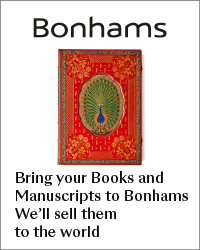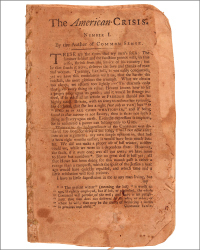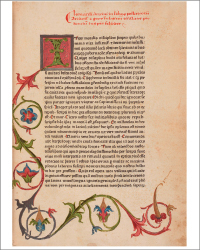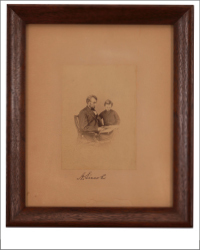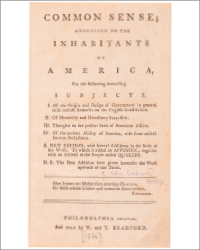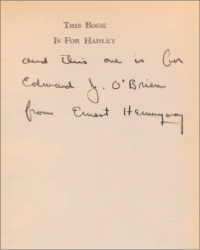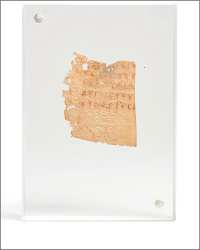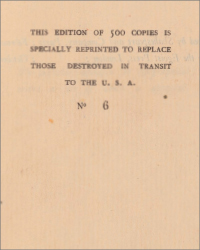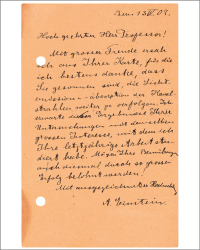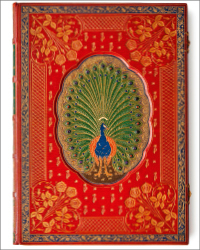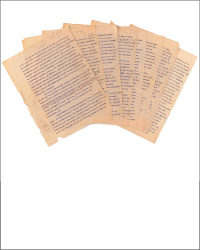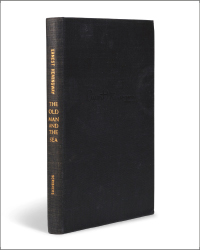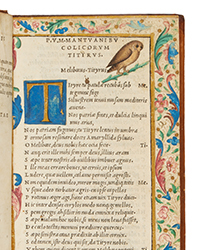The field of rare books and manuscripts lost a good friend. David Szewczyk, who partnered with Cynthia Buffington, slipped away after a hard fight. David was trained as a library man who focused first on significance, history, and completeness. Only after he satisfied his curiosity, he then priced those items that reflected his standards.
He was a gifted intellectual. For him, libraries were his suns, dealers his planets and collectors their moons.
His career began at the end of the apprenticeship-trained librarian era, and lived to see the emergence of the dollar-rarity click-click generation we live in today.
He was firm on his prices because he knew what he was offering. He’s missed and his example should be remembered. He upheld the highest standards of 20th century bookselling.
Here is David's partner's statement.
Dear friends, dear colleagues of ALL provinces of Bibliomundo belonging to this listserv! ~ I would rather be writing you for ANY other reason, but must tell you with deepest sorrow that PRB&M’s David died at a little after noon this past Sunday.
As some of you know, he had been since late April fronting a series of medical challenges involving first an unexpectedly arduous set of surgeries and then an even more arduous course of therapy in recovery therefrom; in the latter he had at last, in these late weeks, been making every sort of valiant progress and there was much to look forward to.
His death was utterly unexpected.
A full founding partner in The Philadelphia Rare Books & Manuscripts Co. (PRB&M), David had been in the rare books and manuscripts business for more than 45 years. He had been a member of the Antiquarian Booksellers Association of America (ABAA) and of the International League of Antiquarian Booksellers (ILAB) since the 1970s, across time serving the organization variously as president of its Mid-Atlantic Chapter, as cochair of its Security Committee, and by sitting on its Board of Governors. At the time of his death he was a Certified Member of the Appraisers Association of America, specializing in complex IRS appraisals done for donors of significant or interesting collections to colleges, universities, and other special collections repositories, and in the appraisals that such institutions require for risk management.
But ace bookseller and appraiser that David was, he was at heart a librarian; at heart of hearts, he was a cataloguer and paleographer. He held Bachelor of Arts degrees from Temple University in History and Spanish and Master of Arts degrees in the same disciplines from Indiana University, did post-Master's work at the University of Texas at Austin, and was the author of several scholarly publications. A former Ford and Fulbright scholar and holder of a cataloguing grant for manuscripts from the National Endowment for the Humanities, he worked for two major American rare books libraries ~ Lilly Library and the Rosenbach Foundation ~ having been, surely, one of the last among apprenticeship-trained librarians, bred at the Lilly under David Randall and legendary others there. From the day of its 1984 founding, our PRB&M at its core served libraries with dedication. It pursued much of its work to library standards and on library principles, and David was the one who set it on that course.
We early joined the Rare Books & Manuscripts Section of ALA and attended our first pre-conference in, I think, 1995, in Bloomington; thereafter we seldom missed a year’s participation until pandemic cancelled the 2020 conference ~ which we had looked forward to as a return to Bloomington. Sometimes we had conference “speaking parts,” David’s usually being addressed to library security matters, the dilemmas and details of deaccession, or “Fakes, Forgeries, and Issues of Authenticity”; always we were conference sponsors at some level and for years our Spring advertisement on the back cover of RBM ballyhoo’d the summer’s upcoming fiesta. When we “did” the first RBMS bookseller showcase, in Baltimore, we agonized over missing sessions to cover the stand; but we hosted and enjoyed one of the best parties of our lives in that same year, 2010, when RBMS was in Philadelphia and we were breathlessly, freshly back in our own beloved building at The Arsenal after our dreadful 2009 fire ~ we held it mostly outdoors on the historic Parade Ground, and fireflies memorably attended.
That, by David’s proposal, was when we adopted as our own the phoenix device gracing the title-page of a fine, fire-surviving Venice, 1494, incunable! ~ now at Penn.
David’s remembered and treasured experience of his seniors-to-junior, intimately mentorly, eyes- and hands-on book training at the Lilly inspired him to wish to pass his own learning and lore on in that style. When he and Dan Slive, then Head of Special Collections in the Bridwell Library of SMU, six times between 2007 and 2017 proposed, developed, organized, and taught a five-day seminar course at California Rare Book School on the “History of the Book in Hispanic America, 16th-19th Centuries,” Dan rounded up supporting primary materials at UCLA Special Collections, the Huntington Library, and the Getty Research Institute while David carried into the classroom suitcases loaded with Mexican, Peruvian, and other Latin American colonial and Independence-era imprints drawn from PRB&M’s stock ~ their students often hardly believing that they were not just allowed but would be encouraged by both men to lift and hold up, scrutinizingly manipulate, perhaps caress, and even pass around such books, such things. To be invited to experience, know, and fall in love with rare materials in such free, thorough, personal ways ~ as a cataloguer, curator, bookseller, or collector could ~ was, for some, beyond transformative. Remember, Dave Randall of the Lilly had been a bookseller!
For David, bibliomentorship of the young cataloguers on our staff and of young librarians out in their first or early-career jobs across the country was a habit, a proper principle, and a personal pleasure ~ even as he encouraged younger booksellers in bookselling grounded in bibliographic principles, attention to institutional needs, and bibliofellowship among themselves and with librarians.
No memorial event is presently planned for David. But he was a quiet contributor of books to the collections and dollars to the coffers of a significant number of libraries as well as to several political causes, and those who might wish to “go and do likewise,” in memoriam, would be remembering him in a way that would please him. I may, over the next few days, be able to get together notes on some of his own donees, but contributions made to your own institutions’ special collections would be perhaps even more fitting.
PRB&M, and David, knew there were and are good books and good librarians EVERYWHERE, and that ALL of them “get by with a little help” from their friends.
May his memory be a blessing.
Yours,
Still and ever,
David’s partner,
Cynthy



